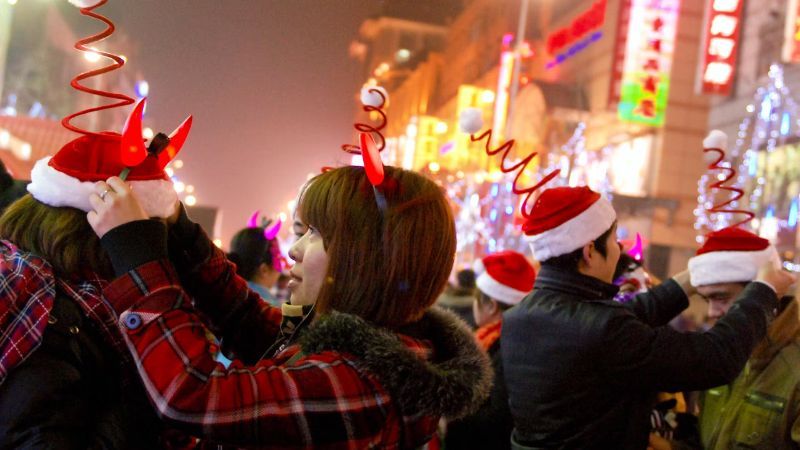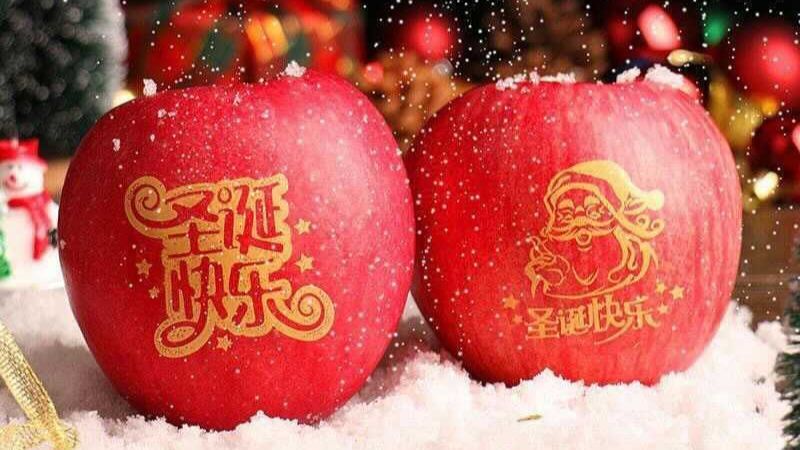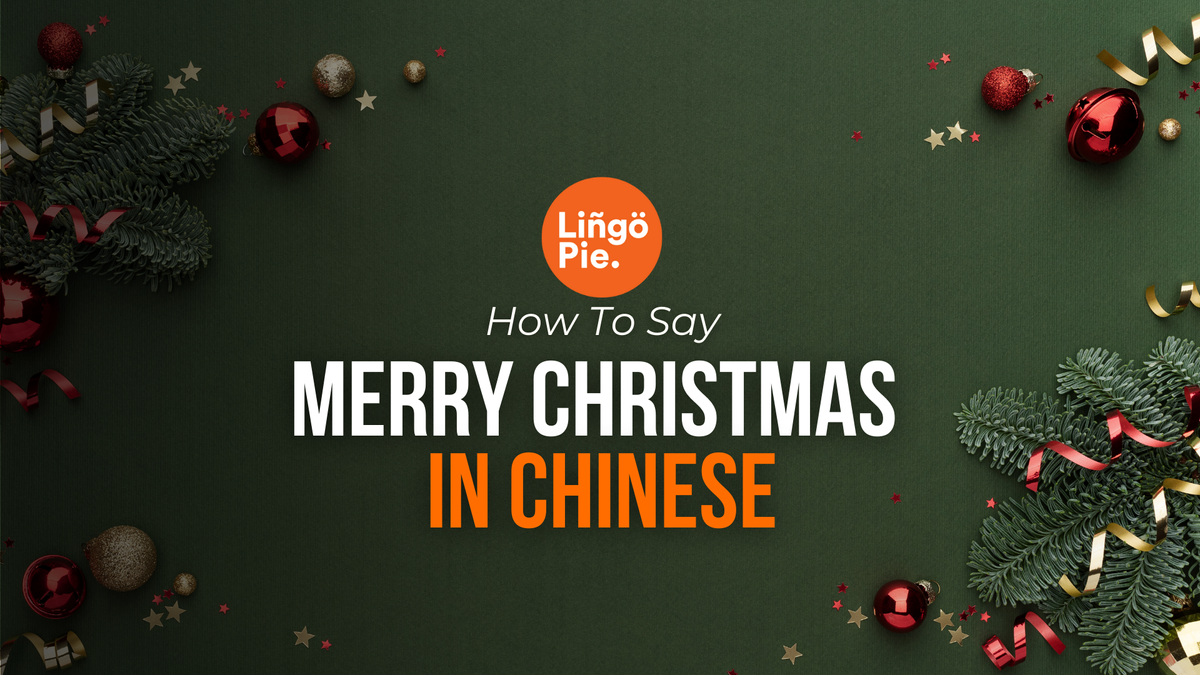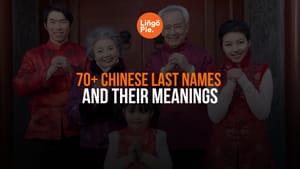If you will be visiting China or spending the holiday with your Chinese friends this Christmas, you want to learn how to say Merry Christmas in Chinese!
In this blog post, you'll learn how to say Merry Christmas in Chinese, other Chinese Christmas vocabulary, and even how people celebrate Christmas in China.
- Qixi Festival (Chinese Valentine's Day)
- Dragon Boat Festival
- Chinese Intermediate Movies on Netflix

How To Say Merry Christmas In Chinese?

To say Merry Christmas in Chinese, you use the phrase 圣诞快乐 (Shèngdàn Kuàilè). It’s pronounced as “shuhng-dahn kwhy-luh,” and it’s a common way to share holiday cheer in Mandarin!
圣诞 (Shèngdàn) means "Christmas," with 圣 meaning "holy" and 诞 meaning "birth." 快乐 (Kuàilè) translates to "happy" or "merry." Together, the phrase literally means "Merry Christmas."

Common Christmas Vocabulary In Chinese
| English | Chinese (Simplified) | Pinyin | Meaning |
|---|---|---|---|
| Christmas | 圣诞节 | Shèngdàn Jié | Holy Birth Festival |
| Merry Christmas | 圣诞快乐 | Shèngdàn Kuàilè | Merry Christmas |
| Santa Claus | 圣诞老人 | Shèngdàn Lǎorén | Christmas Old Man |
| Christmas Tree | 圣诞树 | Shèngdàn Shù | Christmas Tree |
| Gift/Present | 礼物 | Lǐwù | Gift |
| Snow | 雪 | Xuě | Snow |
| Snowman | 雪人 | Xuěrén | Snowman |
| Jingle Bells | 铃铛 | Língdāng | Bell |
| Christmas Eve | 平安夜 | Píng’ān Yè | Peaceful Night |
| Christmas Stocking | 圣诞袜 | Shèngdàn Wà | Christmas Socks |
| Reindeer | 驯鹿 | Xùnlù | Tamed Deer |
| Christmas Card | 圣诞卡 | Shèngdàn Kǎ | Christmas Card |
| Christmas Decoration | 圣诞装饰 | Shèngdàn Zhuāngshì | Christmas Ornament |
Read Also:

Is Christmas A National Holiday In China?
No, Christmas is not a national holiday in China. Since it is not a traditional Chinese holiday, it is generally considered a regular working day. However, in urban areas, Christmas is celebrated commercially, with festive decorations, shopping events, and themed parties.
Some private businesses, schools, and international companies may allow employees to take the day off or hold small celebrations, but this varies widely. The holiday’s growing popularity is more about fun, consumerism, and cultural exchange rather than its religious or national significance.
How Is Christmas Celebrated In China?
In China, Christmas is not a traditional holiday, but it has gained popularity in recent years, especially in urban areas. Here's how it's typically celebrated:
1. Commercial Celebrations
- Shopping and Sales:
Christmas is seen as a major shopping event, similar to Black Friday in other countries. Malls and stores are decorated with Christmas trees, lights, and festive displays, offering big discounts to attract customers. - Festive Decorations:
Cities like Beijing, Shanghai, and Hong Kong are adorned with Christmas lights and decorations, including large Christmas trees and festive displays in public spaces and shopping malls.
2. Parties and Gatherings
- Western-Style Parties:
Many young people and expatriates celebrate by hosting Christmas parties with friends or colleagues. These parties often include Western-style traditions like gift exchanges, Christmas music, and holiday-themed food. - Dinner and Feasts:
In big cities, international restaurants and hotels may offer Christmas buffets or dinners, often with Western-style meals like roast turkey, ham, and desserts like Christmas cake and gingerbread.
3. Gifting Apples (平安果, Píng’ān Guǒ)

One unique Chinese tradition during Christmas is the gifting of apples wrapped in colorful paper. The word "apple" (苹果, Píngguǒ) sounds like "peace" (平安, Píng’ān) in Chinese, so it symbolizes peace and safety, making it a thoughtful Christmas gift.
4. Christmas for Children
In some urban areas, children may receive gifts, and there may be Santa Claus events, especially in malls where people dress up as Santa to entertain kids.
5. Christmas Music and Entertainment
You’ll hear Christmas carols and Western holiday songs playing in stores and public spaces, adding to the festive atmosphere.
6. Limited Religious Observance
While Christmas has gained some popularity, it is still not widely celebrated as a religious holiday in China. Christian churches may hold special Christmas services, but religious observance is not as widespread as in countries with larger Christian populations.
7. Digital Celebrations
As China has a strong digital presence, many people also celebrate Christmas by sending digital greetings, sharing festive posts on social media platforms like WeChat and Weibo, and even using Christmas-themed emojis.
Overall, Christmas in China is more about festive fun, shopping, and socializing than religious or family traditions. It’s a mix of modern influences, consumerism, and a growing appreciation for global celebrations.
Read Also:

Learn Chinese For Christmas With Lingopie! 🎄
In conclusion, Christmas in China is celebrated in a fun and unique way, with shopping, decorations, and parties taking center stage. People exchange apples for peace, enjoy festive meals, and decorate their homes with Christmas lights. While it’s not a national holiday, the holiday spirit is growing in cities.
If you're interested in learning more about Chinese culture and language, Lingopie is a great resource! It offers fun ways to learn Chinese through TV shows and movies. So, why not try Lingopie today and dive deeper into learning about Chinese traditions and language? Keep exploring and enjoy the journey!










